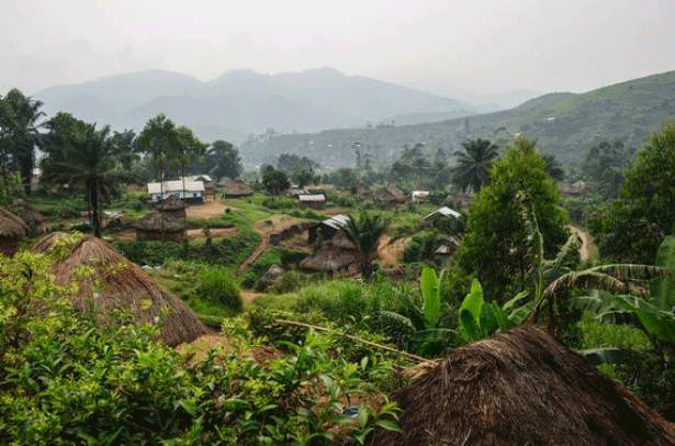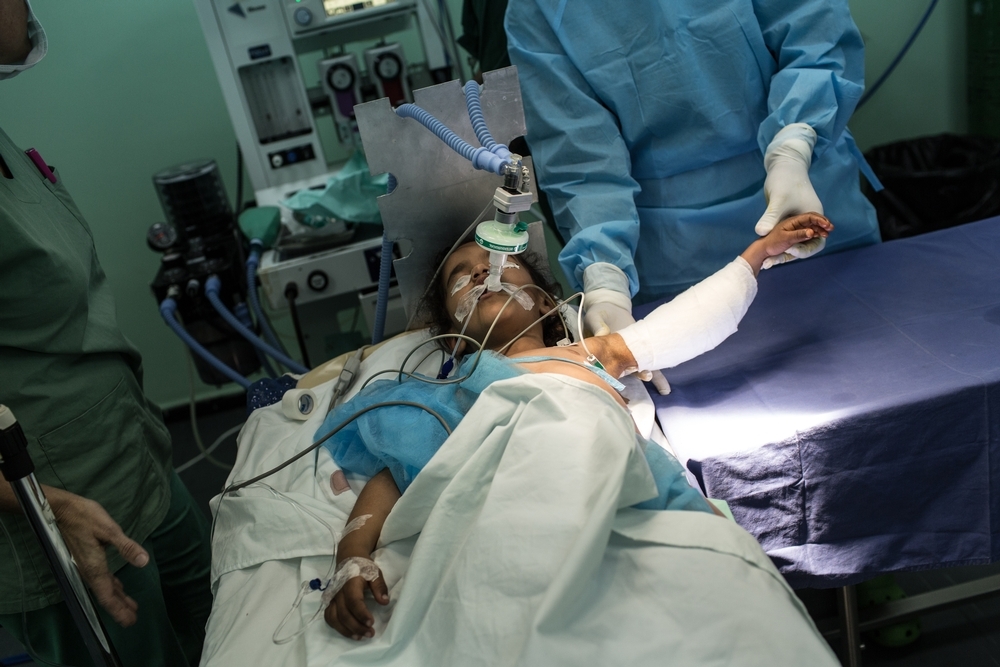Anaesthetists
MSF works with qualified, specialist, motivated surgical teams who provide high-quality care for patients.
Our surgical projects deliver high-quality standardised care (protocols, hygiene, technical platform and medicinal products) and, despite the unstable or remote settings in which we work, MSF provides the appropriate expatriate and local human resources to ensure the provision of high-quality care for patients.
Our need for anaesthetists is crucial for our projects because:
- They contribute their expertise to the overall care of patients.
- They also play a role in training and in sharing expertise with local doctors and nurses.
We have various surgical projects, one of which is the MSF hospital in Masisi
Masisi is a village in North Kivu, eastern DRC, where MSF has been supporting the referral hospital since 2007.
This facility has 170 beds. It has an emergency, maternity and pediatric unit (with a basic neonatology unit and a therapeutic feeding centre) and a surgical and general medicine unit.
It also has a Village d'Accueil for high-risk pregnancies.

Medical team
The medical team comprises expatriates and local employees who work together providing gynecological, anesthesia, surgical, pediatric and maternity services.
The team is supported by nurses from the operating room, the anesthesia unit and the inpatient department, as well as a pharmacist and laboratory technicians.
Role of the anesthesiologist
- Training the paramedical anesthesia team.
- Overseeing the anesthesia procedures in close collaboration with the medical team.
- Overseeing the resuscitation procedures in the emergency unit and for inpatients.
- Coordinating the anesthesia unit and anesthesia activities in cooperation with the emergency unit, the operating room and the inpatient department.
Profile
- A certification in anesthesia.
- Desire to share knowledge, skills and experience with colleagues.
- Experience in team management, training and supervision.
- Available for a minimum period of six weeks.
- Ability to adapt to working with sometimes limited resources.
- Adhere to the MSF Charter and to our managerial values: Respect, Transparency, Integrity, Accountability, Trust and Empowerment
- Adhere to our Behavioral Commitments
-
Willingness to leave on mission without your partner and/or family and to work in an unstable environment
- Good French and English language skills
MSF offers
- Preparation for departure on assignment, briefing and debriefing.
- Health insurance.
- Transportation, vaccinations, visa and accommodation expenses.
- Monthly salary and per diem.
- A humanitarian medical training offer.
- Personal follow up of humanitarian competencies.
- A dynamic, stimulating and multicultural work environment.
The MSF surgical care policy covers all surgical and anesthesia care and encompasses:
- General surgery.
- Obstetrics and gynecology.
- Orthopedic surgery.
- Specialised surgery.
The MSF surgical policy provides for all the different settings and their constraints by listing the minimum conditions needed to deliver the best quality of care possible. All MSF employees working within our surgical projects must follow this policy.
Meet our anaesthetists
Read the interview with Amélie Delaporte, anaesthetist in the field: "A return to the essentials of my profession"
MSF Publications
-
Global Health anesthesia, Anesthesia Provision in Disasters and Armed Conflicts, Feb. 2017
-
Surgery 2017, Sex disparities among persons receiving operative care during armed conflicts, Mar. 2017
-
BMJ Global Health, Is the South African Triage Scale valid for use in Afghanistan, Haiti and Sierra Leone?, Jun. 2017
-
World Journal of Surgery, Are American Surgical Residents Prepared for Humanitarian Deployment?: A Comparative Analysis of Resident and Humanitarian Case Logs, Aug. 2017
-
Springer, Anesthesia in Resource-Poor settings: The Médecins Sans Frontières expérience, Jan. 2015
-
PloS Medicine, Surgical Task Shifting in Sub-Saharan Africa, May 2009
-
Prehospital and Disaster Medicine, Burden of surgical disease: strategies to manage an existing Public Health Emergency: Report of the 2009 Humanitarian Action Summit Working Group, August 2009
-
World Journal of Surgery, Surgeons without borders: a brief history of surgery at Médecins Sans Frontières, August 2009
-
World Journal of surgery, Ten years of experience training non-physicians anesthesia providers in Haiti, August 2009
-
Conflict and Health, Surgical care for the direct and indirect victims of violence in the eastern Democratic Republic of Congo, May 2010
-
Lancet, Rethinking surgical care in conflict, January 2010
-
Conflict and Health, Providing surgical care in Somalia: a model of task shifting, July 2011
International collaboration
MSF medical specialists are regularly invited to participate in various platforms, particularly:
- School of Public Health, John Hopkins, Baltimore, USA
- OMS, Genève, Suisse

